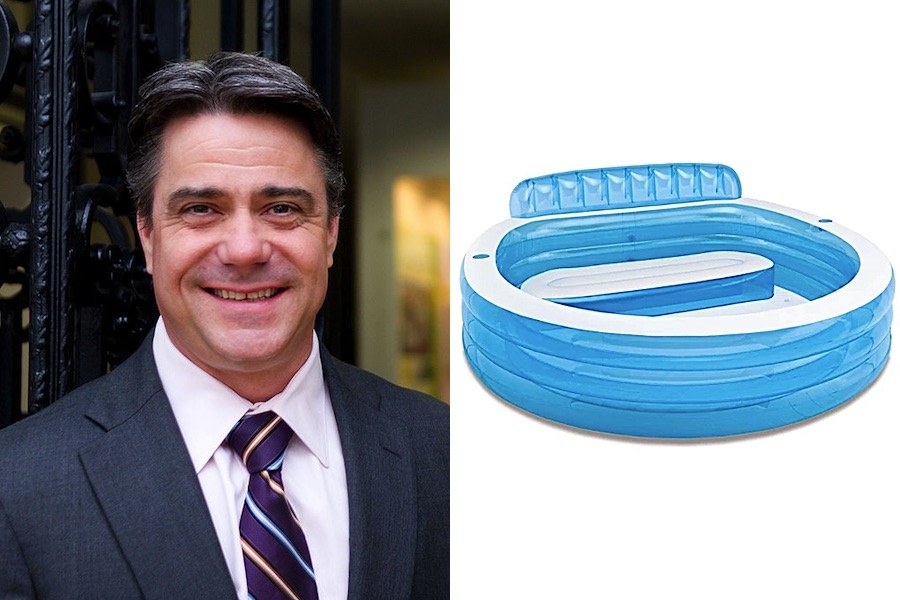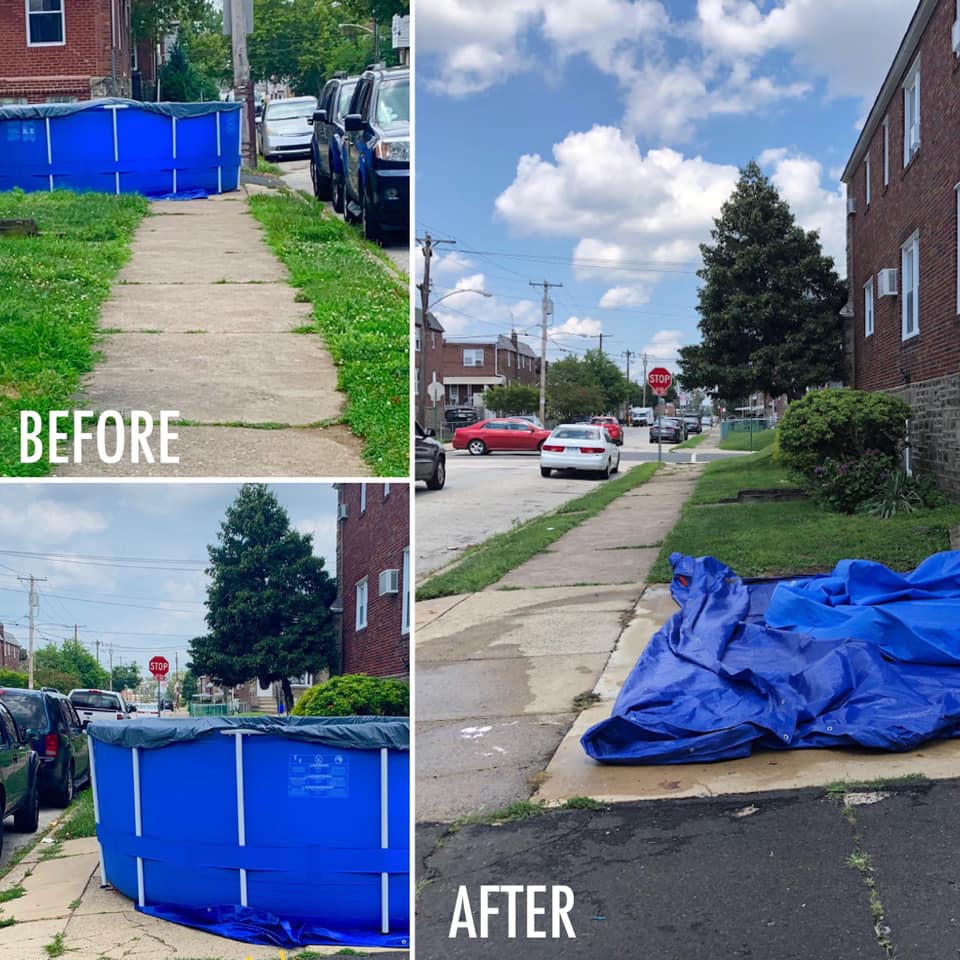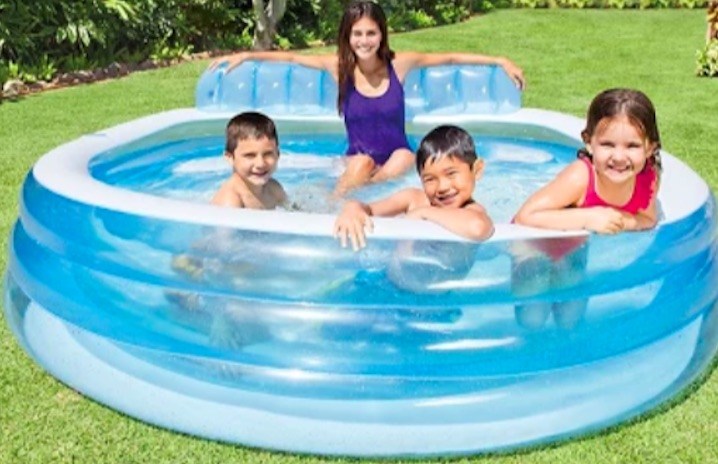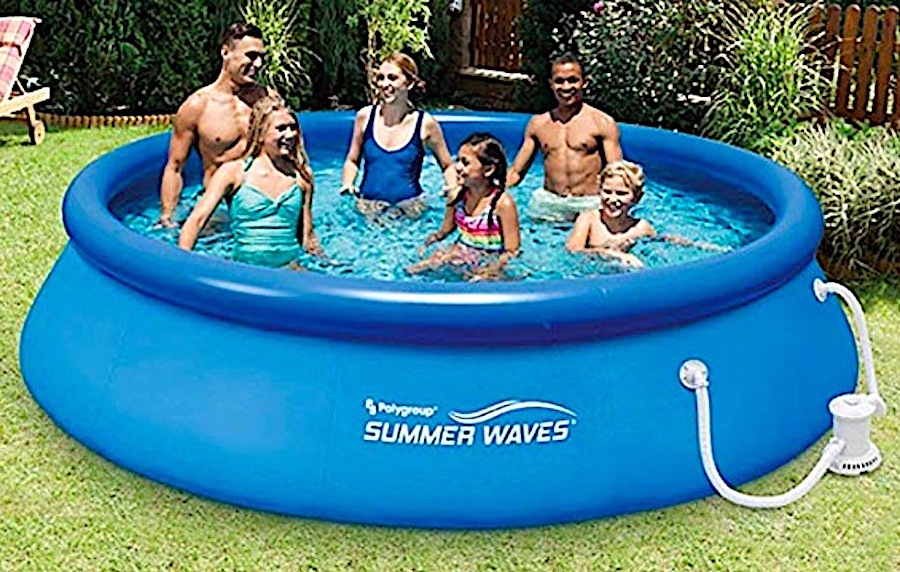Bobby Henon Wants You to Dime Out Your Neighbor’s Illegal Swimming Pool
“You can remove a pool but not open air drug dealers,” responded one area resident to the Northeast councilperson’s call for tips. “I am impressed.”

Left: Philadelphia City Councilperson Bobby Henon. (Photo via Wikimedia Commons.) Right: A $30 Target pool that would be illegal in Philadelphia without a four-foot fence surrounding it.
In case you haven’t stepped outside recently, it’s been downright hot in Philadelphia. This week, the sweltering forecast calls for seven consecutive days of 90-plus degree weather, so it might seem like a simply fabulous time to run to Target or Walmart for an inflatable pool. But if you do, you had better follow the rules governing Philadelphia pools.
Philadelphia City Councilperson Bobby Henon took to Facebook over the weekend to remind residents about the laws surrounding Philadelphia pools. And he encouraged constituents to contact his office to report any illegal pools in Philadelphia.
Henon posted the following before and after photos of an illegal Philadelphia pool whose demise you can credit to Henon’s office:

Some residents quickly chimed in on the Facebook thread with addresses of homes sporting allegedly illegal Philadelphia pools, while others told the councilperson to chill the heck out.
“If it is in someone’s yard and looks clean … then why bother them?!” wrote one area resident. “It’s for the kids! They have nothing better to do because let’s face it, we can’t have our kids running around anymore … it’s too dangerous.”
“You can remove a pool but not open air drug dealers,” chirped another. “I am impressed.”
Of course, the pool in the photos that Henon shared was quite large. Yes, a child can drown in an inch or two of water. But it doesn’t take an expert to tell you that a pool of this size can be a real danger. It also, rather ridiculously, clearly obstructed a sidewalk. It’s easy to understand why someone would have complained about it.
But with Henon calling upon the public to report illegal Philadelphia pools, we wondered exactly what makes a pool in Philadelphia run afoul of the law.
Well, for starters, you can’t just put out a pool that has more than 24 inches of water in it. There are plenty of kiddie pools on the market that are shallower than this depth, but we easily found lots of inflatable pools deeper than this that you wouldn’t think twice about letting the kids soak in — with supervision, of course.
If you want to use a pool with more than 24 inches of water in it, you need to go to the much-beloved Department of Licenses and Inspections and get a permit. You’ll also need a fence or other barrier surrounding the pool that is at least 48 inches high — 36 inches in certain cases where there is a raised platform surrounding the pool.
Yes, you’d need to put a four-foot fence around this $30 Target pool that is 30 inches deep, should you choose to fill it with more than 24 inches of water:

Image via Target
And one other thing.
It’s probably obvious to most of you — the one aforementioned brainiac excluded — that you shouldn’t have a pool that blocks a sidewalk. And you probably know by now that the city is gonna come a-knockin’ should you decide to turn a dumpster into a pool.
But what you might not know is that depending on the size of the pool and the size of your outdoor space, you may not be able to have a pool at all.

Photo via Amazon
Smaller pools are fine. But any pool that measures 12 feet or greater in any direction, such as this 12-foot-wide $62 inflatable pool we found on Amazon, cannot go in a front or side yard. They must go in your backyard, assuming you even have a backyard. And if you do, you need at least two feet between a pool of this size and any buildings or property lines.
Letting your pool drain onto your neighbor’s property is also a no-no. And L&I also requires that you keep your pool clean, fresh, and free of “scum,” as they put it.
And all of that applies only to above-ground pools. If you want to install an inground pool at your home, godspeed.
If this all sounds like way too much trouble to you, we’ve compiled a list and map of Philly’s public pools. There are more than 70 of them and they are 100 percent free to use.
Stay cool!


